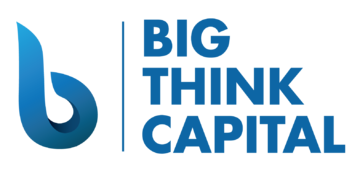
In this article, we will delve into the intricacies of credit scores and their implications for small business loans. We’ll start with a basic understanding of the concept of credit scores and how it applies to small businesses before exploring the factors that can influence a credit score. There will be a discussion on handling situations where the credit score isn’t up to par and how credit score requirements can vary among different lenders.
Role of Credit Score in Securing Small Business Loans
When it comes to securing small business loans, your credit score is like a key that can either unlock or block your access to financial assistance. This score is a numeric representation of your reliability as a borrower, considered by lenders as a crucial indicator. A high credit score suggests good financial habits and reliability, increasing your chances of loan approval.
Lenders, whether traditional banks or alternative lenders, use credit scores to gauge the risk level of lending to a business. A stellar score can not only fast-track the application process but can also positively influence the interest rates and loan terms offered. Thus, maintaining a robust credit score is essential for business owners seeking competitive business financing options.
It’s not just about getting any loan—it’s about securing a loan that aligns with your business’s needs and growth plans. Strategic funding sources look favorably upon businesses that demonstrate financial responsibility through their credit scores, often resulting in more favorable lending terms such as lower interest rates and longer repayment terms.
The connection between credit scores and small business loans is undeniable. As a business owner, your focus should include not only developing a solid business plan but also ensuring your credit score reflects your business’s potential for success. This proactive approach can make all the difference in securing the necessary business funding.
Importance of Good Credit Score
Having a good credit score opens up numerous doors for obtaining small business loans. It’s more than just a number; it’s a reflection of your business’s financial health and its managerial effectiveness. A high credit score can signify to lenders that your business has a low risk of defaulting on loan repayments.
Good credit scores can lead to:
- Lower interest rates, which means you pay less over the life of the loan.
- Increased loan options, including bank loans, SBA loans, and lines of credit.
- Better terms for repayment, providing more flexibility for your cash flow.
This underscores the significance of having a good credit score for business owners seeking capital. Not only does it affect your ability to secure business financing, but it also impacts the terms and costs associated with borrowed funds. As such, maintaining and improving your credit score should be a priority for any business aiming for growth and stability.
Impact of Lower Credit Score on Loan Approval
A lower credit score can dramatically impact your loan application’s outcome. It signals to lenders that lending to your business might be risky. This perception can lead to:
- Higher interest rates to counterbalance the perceived risk.
- Stricter repayment terms, which might strain your business’s cash flow.
- Potential for outright loan rejections, limiting your access to necessary funds.
However, a lower score doesn’t mean that all hope is lost. Some alternative lenders and strategic funding sources specialize in business loans for those with less-than-perfect credit. These alternative financing options might come with higher costs, but they provide a vital lifeline for businesses needing immediate financial assistance.
Thus, while a lower credit score can pose challenges in securing a small business loan, it’s not the end of the road. Business owners should explore all available avenues, including alternative lending options, while taking steps to improve their credit score for future endeavors.
Different Credit Score Requirements per Lender
Credit score requirements for small business loans can vary widely from one lender to another. This variability means there’s no one-size-fits-all answer to the minimum credit score needed. However, understanding the general landscape can help you navigate the process:
- Traditional banks typically seek scores 700 and above for the most competitive rates.
- The Small Business Administration (SBA) often has more flexible credit requirements, sometimes accepting scores as low as 640.
- Alternative lenders may offer loans with scores in the 500s, albeit with higher interest rates and fees.
This diversity in requirements underscores the importance of researching and understanding the specific criteria of various lenders. By doing so, you can tailor your loan application to fit the lender’s profile, enhancing your chances of approval.
Furthermore, always remember that your credit score is just one factor among many that lenders consider. Other aspects like your business’s cash flow, years in operation, and collateral can also play significant roles in their decision-making process. Thus, preparing a solid loan application requires a holistic approach, taking into account all aspects of your business’s financial health.
Get the Loans You Need With Big Think Capital
Big Think Capital understands the complexities of securing small business loans, especially when dealing with the challenges of less-than-perfect credit. Our team works to make the application process as straightforward as possible, minimizing the paperwork and focusing on what matters most—getting you the financial assistance your business needs to thrive. We welcome business owners with all credit backgrounds and aim to provide competitive financing options for a wide range of business needs.
Let Big Think Capital be your partner in business growth. Our commitment to understanding your unique business needs, coupled with our flexible financing solutions, makes us the ideal choice for businesses looking to secure funding, regardless of credit score. Reach out to us today, and let’s discuss how we can help turn your business aspirations into reality.








